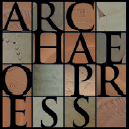
Publishing Scholarly Archaeology since 1997

Download Sample PDF
H 245 x W 174 mm
196 pages
41 figures, 2 tables
Published Feb 2022
ISBN
Paperback: 9781789699852
Digital: 9781789699869
Keywords
Ancient Egypt; Kingship; Time; Ideology; Philosophy; Tutankhamun; Cosmology; Mythology; Duality; Ontology; Religion; Dynastic Egypt
Related titles




Tutankhamun Knew the Names of the Two Great Gods: Dt and nHH as Fundamental Concepts of Pharaonic Ideology
Tutankhamun Knew the Names of the Two Great Gods offers a new interpretation of the terms Dt and nHH as fundamental concepts of Pharaonic ideology, terms that, until now, have often been treated as synonyms reflecting notions related to the vastness of time.
Contents
Introduction ;
Chapter 1: Time ;
Notions of Dt and nHH as presented in modern Western scholarship ;
The nature of time ;
The metaphysical-physical duality ;
Chapter 2: Reality ;
Eternity and sempiternity: echoes of the Dt-nHH duality ;
Greeks in Egypt ;
Practitioners in the House of Life ;
Ancient Egyptian influences in the works of Plato ;
Chapter 3: Contexts ;
The principal texts ;
Synonymity ;
Dt and nHH in the age of the Pyramid Texts ;
For ever and ever again: the reading of the phrase Dt Dt ;
Dt and nHH in the age of the Coffin Texts ;
Dt and nHH as aspects of creation ;
Chapter 4: Graphics ;
The components of nHH ;
The constituents of Dt ;
Chapter 5: Ideology ;
The royal epithet ;
The realisation of ma‘at ;
Horus kingship in relation to Dt and nHH ;
The king in time and the ever-present ideal ;
The ritual landscape as a reflection of Dt in nHH ;
Chapter 6: Exegeses ;
The Dt-nHH duality in textual analysis ;
Two Coffin Texts ;
Speos Artemidos ;
The Neskhons document ;
Afterlife ;
Chapter 7: Misdirection ;
The illusion of philosophical dissociation ;
The misconstrual of Dt and nHH as Egyptology evolved ;
Religious doctrine and political ideology ;
Epilogue ;
Bibliography ;
Index

 Add to wishlist
Add to wishlist
